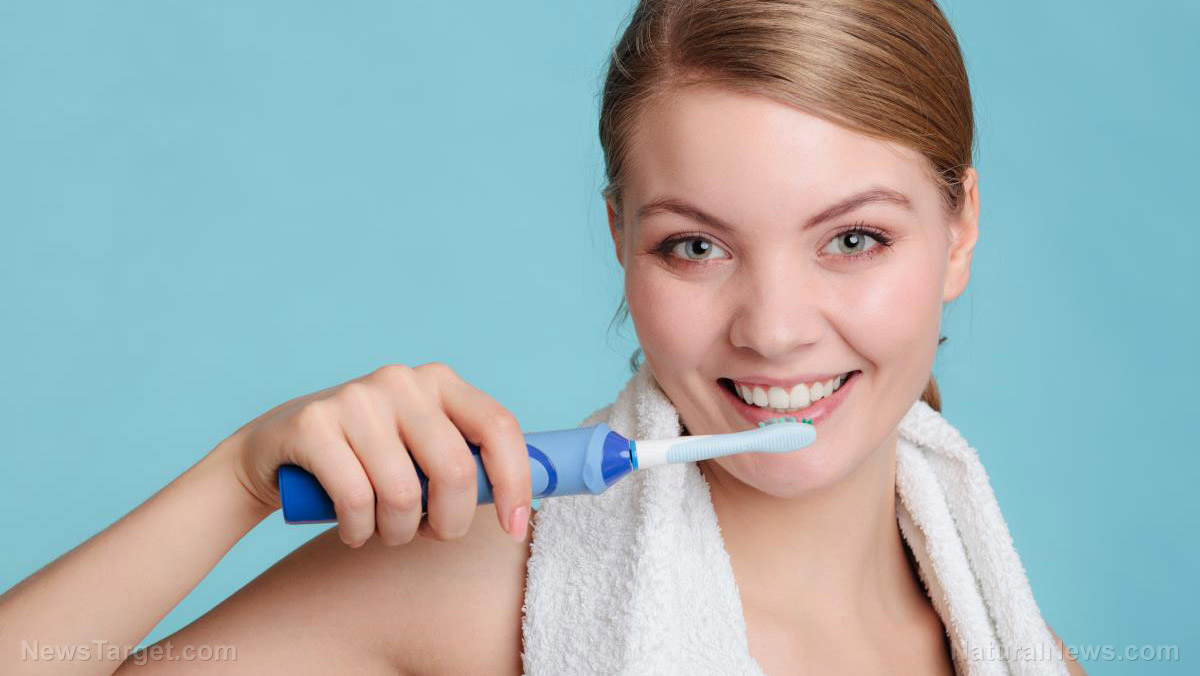This will also surely harden teeth as well. I used a fluoride gel thirty five years ago to halt chronic onset of cavities. I grew up on fluoride poor lands. The protocol worked wonderfully.
However,continuous application is plausibly counter productive. That the gel treatment is not applied automatically upon reaching 25 is the questionable position. The body can shed all excess and your teeth will be largely immune to surface degeneration with ordinary dental care.
Anyway we have a new way to support healthy teeth here.
.
Repair decayed teeth with “bioactive” glass that remineralizes teeth without fluoride
Tags: BioMinC, cavities, dental care, Fluoride, health, oral care, oral health, teeth, toothpaste
https://www.naturalnews.com/2017-11-04-repair-decayed-teeth-with-bioactive-glass-that-remineralizes-teeth-without-fluoride.html
(Natural News)
Glass is not a material typically associated with dental hygiene. Yet a
team of researchers from Queen Mary University of London’s (QMUL)
Institute of Dentistry is working on changing that. According to ScienceDaily.com,
the researchers have developed a fast-dissolving “bioactive” glass that
they’re putting in toothpaste called “BioMinC”, a new toothpaste that
repairs decayed teeth.
The toothpaste is an offshoot of their earlier product, “BioMinF”
toothpaste. The key differences between these toothpastes is that the
major component in BioMinF is fluoride-containing glass, while BioMinC
has chlorine-containing glass. Compared to BioMinF, BioMinC has a more
reactive glass and promotes formation of apatite at a more rapid pace.
BioMinC works by forming a coating of crystalline hydroxyapatite, a
chemical that serves as both a major component and important ingredient
in normal teeth and bones. Hydroxyapatite normally gives bones and teeth
their structure, while the hydroxyapatite in BioMinC imitates bone and
teeth mineral to return lost minerals to decayed teeth.
“This toothpaste is unique because it can put back the mineral lost
from your teeth after consumption of an acidic drink, but without the
use of fluoride. This isn’t just for people who have bad teeth, everyone
can potentially benefit from using this new toothpaste,” said Robert
Hill, Professor of Physical Sciences in Relation to Dentistry at QMUL.
(Related: Study shows fluoride may not help teeth at all.)
In addition to remineralizing teeth, another major benefit of BioMinC
is that it can occlude patent dentinal tubules, which are minuscule
canals in teeth that can detect stimuli and lead to hypersensitivity
when teeth enamel are worn down. BioMinC decreases the risk of
hypersensitivity by slipping into the tiny cracks of the teeth and
breaks down upon contact with acid before the enamel does, in turn
making the teeth all the more resistant to acidic foods and beverages.
BioMinC will become available by the end of this year. It will be sold under the team’s spin-out company, BioMin Technologies Ltd., and the price is to be determined.
While BioMinC holds a lot of promise, its efficacy will definitely be
helped by good dental hygiene habits. Taking care of your teeth and
gums is a must since poor oral health can do a number on your overall
physical health and self-esteem. Fortunately, proper gum and teeth care is fairly easy to accomplish
without the need for expensive or complicated dental gadgetry. You just
need to keep the following in mind and make habits out of them:
- Limit your intake of sugary and starchy foods – Nearly everyone knows this by now but it bears repeating: going overboard on candy and sugar is a gateway too tooth decay. This is because sugar feeds the mouth bacteria that generate enamel-weakening and tooth-damaging acids. These acids then begin the demineralization process, and the mouth can take well over an hour before it returns to its normal, non-acidic pH state. These same bacteria consume the fermentable carbohydrates found in breads, crackers, and other starchy foods, so be wary of these as well.
- Floss everyday – Your toothbrush can’t clean every tight space between your teeth. These hard-to-reach areas are highly vulnerable to plaque build-up which can then become gum disease in the long run. Flossing prevents this from happening by stirring up the bacterial colonies occupying those tight spaces and making them less dangerous.
- Use a soft-bristled toothbrush – A hard-bristled toothbrush may be good at removing plaque and stains from our teeth, but it can also wear down the enamel that protect our teeth from harmful bacteria. Moreover, hard-bristled toothbrushes can actually damage our gums too and cause them to recede, making our teeth more susceptible to sensitivity and cavities. You won’t have to worry about any of these when you use soft-bristled toothbrush. While they do wear down quicker than hard-bristled toothbrushes, it’s recommended that you change your toothbrush every three to four months anyway.
- Brush your tongue – Your tongue may not be prone to cavities, but its rough surface is the perfect breeding ground for bad bacteria. Simply using mouthwash won’t kill the bacteria since doing this only gets rid of the outer cells of the bacteria and not the cells they need to survive. Brushing your tongue will do what mouthwash can’t.
Visit Dentistry.news for more tricks on how to achieve perfect oral health, or for more updates on the world of dental care.
Sources include:

No comments:
Post a Comment